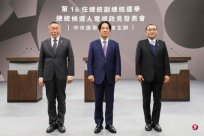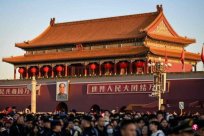The Third Plenary Session of the Eleventh Central Committee of the Communist Party of China on December 22, 1978 marks that China has entered a new era of reform and opening up.In the past 45 years, reform and opening up have not only profoundly changed China's appearance and destiny, but also have already become popular and have become the beliefs of most Chinese people.
Although the Third Plenary Session of the Eleventh Central Committee did not directly propose the concept of "reform and opening up", the plenary session stopped using the slogan of "with class struggle as the outline."The focus and the attention of the people across the country has shifted to the modernization of socialist modernization and opened a new era centered on economic construction.The biggest feature of this era is reform and opening up.Another major change in the Third Plenary Session of the Eleventh Central Committee was to overlook the position of Hua Guofeng, then the chairman of the CPC Central Committee, and Deng Xiaoping actually became China.
The reform and opening up as a political concept is mainly proposed by Deng Xiaoping.Before and after the Third Plenary Session of the Eleventh Central Committee of the Communist Party of China, Deng Xiaoping repeatedly used the concept of "reform". For example, on September 17, 1978, he proposed that "to educate all cadres to think independently, and unreasonable things can be boldly reformed."At the same time, he also mentioned the concept of "openness" many times, emphasizing that "the open policy fully meets the reality of China and the long -term interests of the Chinese people. The Chinese people are in favor."
But until 1984, Deng Xiaoping first combined the concept of "reform" and "open".When he visited the Jimei Village, founded by the famous overseas Chinese led Chen Jiageng on February 9 of the same year, said: "After the reform and opening up, the work of overseas Chinese affairs is important." Since then, Chinese official discourse has often used "reform and opening up."
In October 1987, the "reform and opening up" in 29 times in the report of the Thirteenth National Congress of the Communist Party of China, and "reform and opening up" officially became the political concept of China's basic national policy after the Third Plenary Session of the Eleventh Central Committee.In October 1992, the 14th National Congress of the Communist Party of China wrote the concept of "reform and opening up" into the party constitution, emphasizing that "reform and opening up is the only way to liberate and develop productive forces."
In the past 45 years, China's reform and opening up has roughly experienced three major stages.
The first stage from December 1978 to October 1992.The reform starts from rural areas, abolish the people's commune system, and implement the joint production contract responsibility system, which greatly mobilizes the enthusiasm of farmers' production;Rural shift to cities and the entire economic field; open to the outside world from special zones such as Shenzhen to more than 10 coastal cities.
In theory, the first stage is the stage of re -understanding the planned economy, commodity economy and market economy in practice, and exploring the direction and goals of reform and opening up.
From October 1992 to November 2012.Under the guidance of Deng Xiaoping's southern tour, in October 1992, the 14th National Congress of the Communist Party of China clearly proposed the reform goal of establishing a socialist market economy.At this stage, China has gradually established an ownership structure with public ownership as the main body and a variety of ownership development; successfully joined the WTO; initially established a market economy system; proposed the establishment of a modern property system, developing a mixed ownership economy, and so on.
The second stage is the goal model of the CCP to establish a socialist market economy, and initially establish a stage of socialist market economy.At this stage at this stage, the Chinese economy has grown at a high speed. Especially after joining the WTO in 2001, China has gradually become a "world factory". The Chinese economy also surpassed Japan in 2010 and became the world's second largest economy.
In the second stage, the Communist Party of China has gone through two general secretary of Jiang Zemin and Hu Jintao.At the same time as China's rapid economic growth, the Communist Party of China has also begun to face severe challenges such as corruption, gap between the rich and the poor, and environmental protection.
The third stage has been from the 18th National Congress of the Communist Party of China in 2012.After Chinese officials took over China, they established personal authority with strong anti -corruption and promoting reform, becoming the "core" of the CCP's new leadership.In the 19th National Congress of the Communist Party of China in 2017, the socialist thought of Chinese characteristics of Chinese characteristics became the "new era" that the Chinese Communist Party was written into the party constitution, and China entered China's long -term "new era".
But the reform and opening up as the basic national policy of China has not changed. "Comprehensively deepening reforms and expanding high levels of openness" is also an important slogan of China's official new era.In fact, the official new era of China is still the period of reform and opening up after the Third Plenary Session of the Eleventh Central Committee of the Communist Party of China.
However, the lack of confidence's mood has recently spread in Chinese society. One of the important factor is that many people think that the prospect of reform and opening up is unknown.This emotion has significantly adversely affected China's economic and social development.
Today, 45 years after China's reform and opening up, the pessimistic emotions have risen again, indicating that reform and opening up requires not only slogans, but also new impetus. The Third Plenary Session of the 20th Central Committee of the Communist Party of China will be held early next year.Whether the plenary session can boost social confidence in a new reform and opening up attitude, all parties are waiting to be seen.




